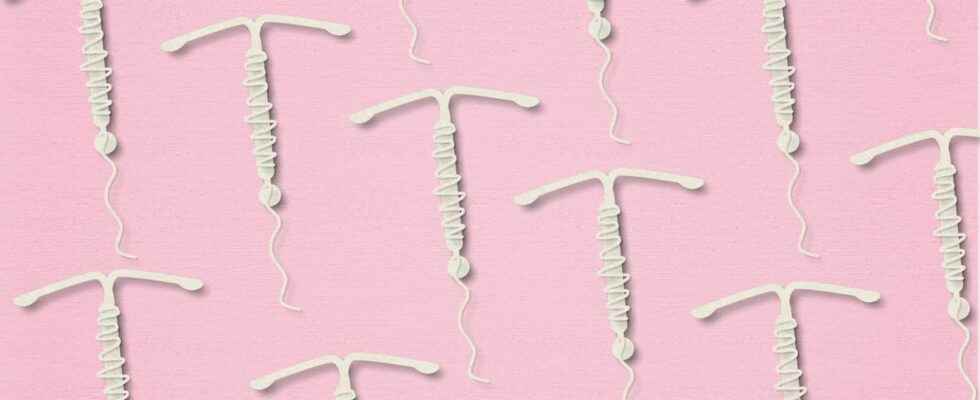Published on
Updated
Reading 2 mins.
in collaboration with
Dr Odile Bagot (Gynecologist-obstetrician)
The National Medicines Safety Agency (ANSM) publishes a press release about certain hormonal IUDs. These would be linked to a risk of “depression or mood disorders”, described as “low”, according to the results of a study published in the Journal of the American Medical Association (JAMA). The point of view of Odile Bagot, gynecologist member of the committee of experts of Doctissimo.
Ladies, here is some information that might be of interest to those who use hormonal contraception, in particular an intrauterine device (IUD, also called IUD) containing levonorgestrel.
What is an intrauterine device?
An intrauterine device – or intrauterine device – is a method of contraception that can be copper or hormonal. The IUD is a contraceptive method that generally lasts for five years. The IUD with hormones, studied here, locally releases levonorgestrel, a synthetic progestogen hormone. It helps thicken the cervical mucus between the vagina and the uterus. The two hormonal IUDs dosed at 52 mg of levonorgestrel are Mirena and Donasert. The others, Kyleena and Jaydess, are less dosed (19.5 mg and 13.5 mg).
A study on the consumption of psychotropic drugs
The ANSM published yesterday, February 14, a study by GIS Epi-Phare on the consumption of psychotropic drugs, whether antidepressants, anxiolytics or hypnotics, in women, two years after the insertion of an IUD. to hormones dosed either at 52 mg or at 19.5 mg of levonorgestrel. Results : “Women with an IUD with a higher dosage of levonorgestrel (52 mg) have a very slightly increased risk (+13%) of using antidepressants in the two years following the insertion of the IUD compared to an IUD less dosed in progestogen. On the other hand, the study did not show an increase in the use of anxiolytics or hypnotics“notes the ANSM in its press release.
“A low risk which remains to be specified”
The ANSM therefore recalls that “as with all hormonal contraception, the use of a hormonal levonorgestrel intrauterine device may therefore be associated with a low risk of depression or mood disorders (depressed mood)” and “this risk is low and remains to be clarified”. Finally, the agency emphasizes that “levonorgestrel IUDs are drugs and can therefore cause side effects“and only in case”mood changes and the occurrence of depressive symptoms, including at the start of treatment, women are advised to contact their doctor”.
The opinion of Dr Odile Bagot, gynecologist member of the Doctissimo expert committee
“To take up the conclusions of the ANSM, the first thing to emphasize is that the risks are low. In addition, I notice several biases in this study:
- Physiologically, depressions cannot be explained by this type of IUD, because they induce an androgen-type reaction in women, which normally tends to boost rather than depress;
- The second bias is the presence on the notice of the risk of depression, which leads some women to attribute it to their contraceptive;
- This type of IUD is intended for women with children, who may have more mental disorders and depression;
- Finally, the study does not compare depression but the taking of medication, which is not quite the same thing. she concludes.
